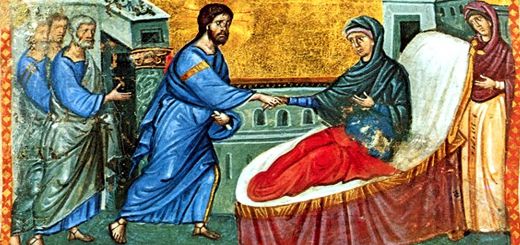Febris nostra, febris nostra . . .

Febris enim nostra, avaritia est: febris nostra, libido est: febris nostra, luxuria est: febris nostra, ambitio est: febris nostra, iracundia est. (Homilia sancti Ambrosii Episcopi in Luc. 4, 57–59, 63)
At Matins this morning, Saint Ambrose sounded like a roaring revival preacher. The repetition of febris nostra five times is a powerful rhetorical device. One can picture the impassioned bishop making a pointed gesture with each repetition so as to drive home its meaning. “Our fever, in fact, is avarice; our fever is sexual desire; our fever is lust; our fever is ambition; our fever is anger”.
I have always said that the best school of homiletics is reading the Fathers, and reading them aloud. A mere visual reading dulls the effect of their rhetorical artistry with its brilliant illiterations, repetitions, and plays on words. One must hear the Fathers. This is the whole point of reading the Fathers at Matins every day.
A priest who listens to the Fathers preach will himself in the lessons of the breviary will himself become an effective preacher. One cannot frequent the Fathers and go away unchanged. Their word is fire. The apocryphal word of Our Lord can be applied, as well, to the Fathers of the Church: “He who approaches me, approaches the fire”. “And they said to one another, Were not our hearts burning within us when he spoke to us on the road, and when he made the scriptures plain to us?” (Luke 24:32).
